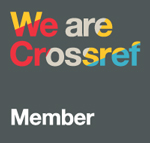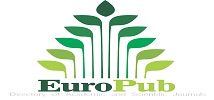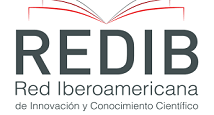Influence of playful texts on the production of texts by university students
DOI:
https://doi.org/10.51440/unsch.revistaeducacion.2021.19.197Keywords:
Playful texts, text production, textual typology, gameAbstract
The research aimed to determine the influence of playful texts on the production of texts in the students of the III Cycle, Mention: Language and Literature of the Faculty of Education of UNSLG, the diagnosis were made that allowed to corroborate the limitations to produce texts of students and propose the use of playful texts recreationally convinced that the game is a refreshing and motivating learning resource , we raise our general and specific problem. The research was of a type applied with quasi-experimental design, experimental method, the sample: 55 students distributed in experimental group, 30 students and control group, 25 students, after applying the instruments, the results obtained verified the hypothesis: The playful texts significantly influence the production of texts in the students of the III Cycle of the mention of Language and Literature of the Faculty of Education. In the evaluation In the entry assessment with respect to text production, the control group obtained 80% in the deficient category, 15% in the regular category and 5% in the very poor category; the experimental group in the deficient category gained 95% and 5% in the very deficient category. In the output evaluation the control group obtained 70% in the deficient category, 30% in the regular category and the experimental group obtained 75% in the regular category, 15% in the good category and 10% in the deficient category.
Downloads
References
Alvarado, L. y otros. (2004). Recreación, lúdica y juego. (2da Ed.). Colombia: Aula alegre
Magisterio. Cortez, M. y García, F. (2010). Estrategias de comprensión lectora y producción textual. Perú: San Marcos. 118.
Jiménez, C. (2005). La inteligencia lúdica: Juego y neuropedagogía en tiempo de transformación. (1era Ed.) Colombia: Corporation Magisterio.
Marro, M. y Dellamea, A. (1993). Producción de Textos. Buenos Aires. Editorial: Docencia.
Mendoza, A. (1998). Conceptos claves en didáctica de la lengua y la literatura. España: Gráficas Signo, S.A.
Monge, M (2016). El juego en los niños: enfoque teórico. Revista Educación. Costa Rica. Editorial Universidad de Costa Rica.
Ramos, M. (2012). El problema de comprensión y producción de textos en el Perú. Lima: Pontifica Universidad Católica del Perú.
Serrano, S. (2013). La lectura, la escritura y el pensamiento. Función epistémica e implicancias pedagógicas. Universidad de los Andes. Mérida Venezuela
Siancas, M. (2010). La importancia de producir textos en la educación primaria. México: Trillas. (Siancas, 2010).
Velásquez, J. (2008). Ambientes lúdicos de aprendizaje: Diseño y operación. (1era Ed). México: Trillas.
Velásquez, E. (1996) Jugar: Vivir, crear lugares. Memorias del Segundo Congreso del Juego y del Juguete. Colombia.
Vygotsky, L. (1985). Pensamiento y lenguaje. Buenos Aires: La Pléyade
Vygotsky, L. (1989). El Desarrollo de los procesos psicológicos superiores. Barcelona. Instituto Peruano de Desarrollo Empresarial San Luis Gonzaga. (s.f.) Módulo de comprensión lectora. Perú.
Downloads
Published
How to Cite
Issue
Section
License
Copyright (c) 2021 Julia Liliana Morón Hernandez, Iván Leonidas Velásquez Zea, Maximiliana Gladys Cortez Cordova

This work is licensed under a Creative Commons Attribution-NonCommercial 4.0 International License.





















